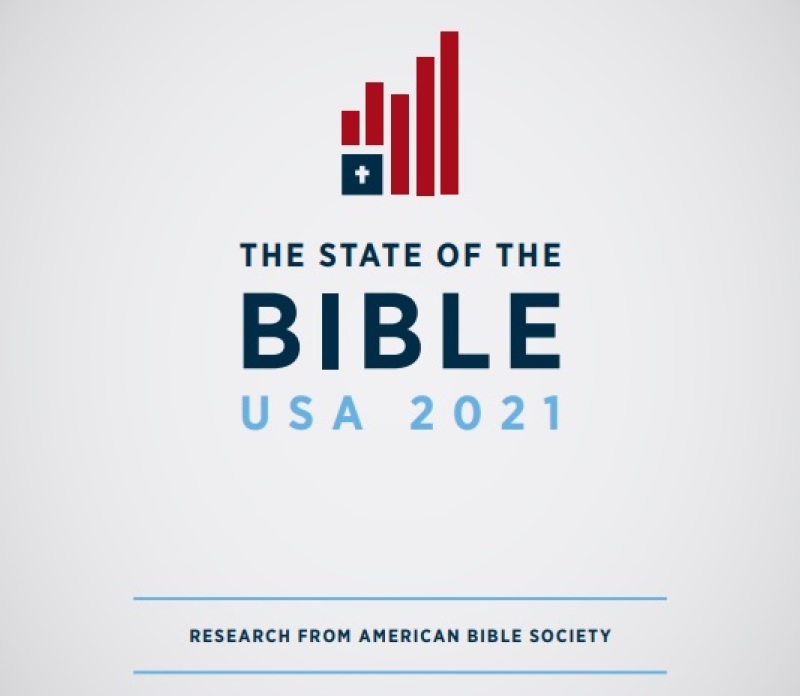
The recently published "State of the Bible" survey examined how Americans see the Bible and its influence on the nation.
The American Bible Society's State of the Bible 2021 survey reveals that over half of U.S. adults (54%) believe that America would be worse off without the Bible, which is actually a 5-percent increase since last year (49% in 2020).
In detail, it said that one-seventh of Americans (14%) think the country will be better off without the Bible, largely unchanged from last year's 13 percent. While the percentage of people who hold a critical opinion has stayed relatively constant, the proportion of people who hold a neutral opinion has shifted since last year.
One-third of all adults in the United States (33%) feel that America will remain the same with or without the Bible. In 2021, 5% of people who were indifferent last year have changed their minds and adopted a more Bible-affirming viewpoint.
This trust in the Bible's importance to the United States corresponds to a belief that the Bible promotes highly regarded virtues such as Faith (72 %), Hope (71 %), and Love (69 %).
When questioned whether the Bible's claims are true, a plurality of respondents said yes.
When questioned whether the Bible's teachings are "important to sustaining the following American values," only democracy earned a low level of consensus from the respondents. Only 44% believe the Bible's teachings "underpin American democracy," while 14% disagree, leaving roughly a third (31%) unsure about the relationship between the Bible and democracy.
The Bible v. Other Sacred Books
Ironically, although the Bible provides a remarkable view of the world's "history, purpose, and future," many Americans are unaware of its uniqueness. Currently, four out of ten Americans (41%) believe that the Bible, the Koran, and the Book of Mormon are all separate expressions of the same divine truths. Just one-third (32%) regard the Bible as different from other spiritual texts.
Fortunately, the majority of definitions of what the Bible is remain under Christian tradition.
One-quarter of those polled (26%) claim the Bible is God's real message, and that it can be "taken literally." Three out of ten people (29%) believe the Bible is God's word and that, though it is without mistakes, portions of it can be read "both literally and symbolically. " 16 % believe the Bible has historical or factual inaccuracies but is nevertheless God's word. When taken as a whole, seven out of ten Americans believe that Scripture is God's message (71 %).
Furthermore, the survey asserts that "over half of American adults (55%) hold what is known to be a "high" view of Scripture, which deems the Bible without error."
Frequency of Bible Use
More than 181 million Americans in the last year have opened a Bible. This figure has risen dramatically (7,1%) since 2020, when, at least occasionally, 169 million adults used the Bible.
In 2021, the number of US adults who regularly read the Bible is estimated at 128 million. But only over one-third (34 percent) of U.S. adults read the Bible once or more a week, and half (50%) do not read the Bible twice a year (including 'never').
Many who read the Bible more than twice a year, just not weekly (16 %), have been identified between the two extremes. In general, one in six U.S. adults (16%) most days of the week, a good increase from the 12% in 2020.
Bible Users Profile
According to the survey, one in two Americans (50%) who are Bible users today, are not just Christians, tend to be older, ethnically diverse (Anglo or Whites, Afro or Blacks, Hispanics and Asian Americans), and are more likely to live in the American South than in other regions of the country.


























